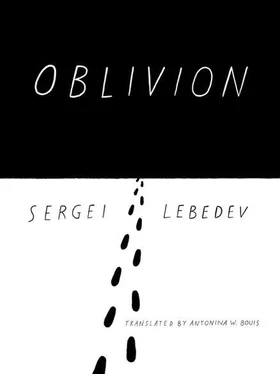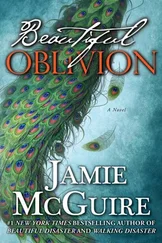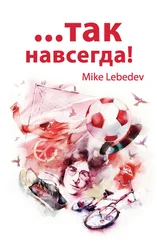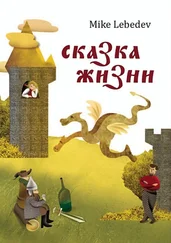And so, lost in the tundra, he found his first petroglyphs, signs of the sun, rolling sun wheels; later, when he was sick, after the surgery, after the chemotherapy, the former soldier returned to these parts, because the drawings chiseled in stone seemed to be the most essential things he had ever encountered; he did not collect petroglyphs, he did not make copies, he simply looked for them, following the path of the ancient artists, and gave the drawings a reason for existing— he looked at them.
We drank chifir , the extra-strong tea brew; I asked if it was possible to find someone who remembered this area from decades ago. He said that there were a few nomadic families left in the tundra, who had escaped being forced into a reindeer-breeding kolkhoz; now others tried to show the reindeer to tourists for money, so they moved deeper into the tundra and shot at helicopters that tried to land by their tents. They had no radios, nothing connected them to other people; they accepted only him—sick and looking for ancient drawings for their own sake; at this time of year I could probably run into them in the middle reaches of the river. There was also a village with descendants of the exiled prisoners, it was even farther; he had not been there in close to ten years, and when he was there, people were leaving, abandoning their houses.
The chifir was gone, the fire went out; we embraced, he did not ask me about anything and moved on along the slope, and I went back to the embankment and for a long time as I walked I could see his figure moving along the hills.
Three days later I came out at the former port, where the ruined railroad led; I came out by the river. The water flowed amid low banks in shallows, unattractive, reflecting the gray sky, with a paucity of reflections, sparkle, or light, and the river’s width was somehow lost in the rounded banks and unhurried current.
Hundreds of buoys lay in the shallows; they were made of plastic, like fishing floats, metal, and wood, like the top of a lighthouse—the entire history of river boating in one place. The river changed its course, washed up new shallows where never-flowering water lilies, trembling like a bird’s webbed foot, started to grow, banks collapsed, revealing the corpses of prehistoric animals, ancient deer, and time was broken open like a hunk of bread in those cliffs—pick it up, run your fingers through the stone age; the river changed its course, but the buoys no longer followed the changes, did not mark its depth, did not stretch out its thread, did not huddle in the dark; when navigation ceased here, the river returned to the complete control of the fish, the fin—forerunner of the oar— replaced the propeller, and the river waters were no longer troubled by the rotation of twisted blades.
Near the shore, only pilings were left of docks; they held trees brought by the river, the rubbish of high waters, and water was sucked beneath them with a slurp and whistle; farther along, in a broad cove formed in an old river bed, barges and tugs sat on the bottom.
Usually an abandoned ship is like an abandoned house; but the barges did not elicit that feeling; they were enormous rusty hulks, grim and clumsy arks; they sank slowly, pushing up a boggy ooze with their weight; the paint came off them unevenly, in layers—you could see that some painters did their work honestly, undercoating first, and others did not— and below the crumbling paint you could see a second layer, a third, fourth, fifth, sixth, seventh; the aging metal was crumbling, rusted chunks of the sides fell into the boat, but the paint layers held on to one another; the barges were half-drawn, they had been used along the river three or four times beyond the limit of the metal’s exhaustion, repainting but not repairing, and the metal gave up first, while the baked paint survived.
The tugs were to the side of the barges, six boats: “ … omsom … lets , ” “Sha …. ter,” “Gornya … ” “Pogranichn … Zapol … , ” “Kap … tan P … asolov,” and “Boe … ” is what could be read on their sides, as if the names were being transmitted by Morse code with a bad connection.
I walked from one to another and found the only dinghy that looked seaworthy; on the second tug I found oars, on the third a half-barrel of pitch to caulk the sides. I also discovered a rock-hard bag of salt, and I took it—I was sorry to see salt wasted; salt was the missing ingredient in local fresh water and skies, and I tossed it into the box on the dinghy.
I set off, the dinghy was too big for one person to steer normally, so I paddled to the middle of the river and let myself go with the flow; the boat settled, sucked up water once again, and the river carried me away from the old tugs, the buoys on the shore, and opened up a view of the hills beyond the bend; the tilt of the land bore its waters to the Arctic Ocean, and I followed gravity; there was no wind, and there was no time, either—the river had become time, and time inexorably headed for the river’s mouth.
Days passed; bare hills, no people, quiet, the measured flow of water, lulling me, telling me that everything in the world was peaceful, calm, and smooth. I made notches in the oar to mark the days, but then I dropped it in the water and it floated away; I ate very little, I wasn’t moving, using energy, and I lost my appetite; sometimes it seemed that I would soon become ethereal, transparent, or turn into a young water spirit; fish looked at me from the water, settling into the wake, as if awaiting my transformation. A two-meter pike accompanied me for a while—pikes live for hundreds of years and this one probably remembered people, fishermen, sailors; then it swam off to the side, and once again I saw only water and hills.
That is why I noticed the remains of a bridge—the river had once been crossed by a second branch of the railroad meant to extend to a future settlement in the tundra which had never been built—I first did not recognize it, that is, my eye did not accept it. I saw something odd, unnecessary, out of harmony, a mistake; that must be how animals see what humans build.
In the shallows, where the current is not strong even at high water, stood crates filled with earth and stones, looking like crosssections of log cabins; on the left bank rose the cones of chums , or tepees, essentially the enlarged hats of nomads, negating the idea of a house; wherever you toss your hat, there is your hearth. The area was hilly and the chums followed the lines of the bare hills as a wave follows another.
I landed close to the settlement. Below the railroad embankment, steam engines and trains were parked. They must have been abandoned when the bridges were washed away on the line, and now they were rusting and sinking into the tundra; strange only at first glance, it was the trains and not the chums that seemed a chronological inaccuracy.
The steam engines stood there like broken time machines, which they were in other places, where the railroad truly did accelerate time, opening a way through it, where the steam engine truly was seen as a symbol of the future happening now, where tracks, semaphores, and stations connected the scattered times of a big country into a shared ensemble. But here, in the middle of the tundra, those mechanisms did not work; here it was still the time before steam engines, time before whatever would be; I remembered the steam engine from my dream—this was its dead end, the end of its trip, and the tundra, indifferent to the cumbersome machine, extended itself tranquilly and in its entirety, not knowing about divisions into different sides of the world.
Near the chums, hunks of meat hung from sanded poles; the smoke from the campfire fed on wet willow was everywhere, more than was needed to smoke the meat and chase away midges and flies; it seemed it was intended to permeate people, to teach them to stop the flow of tears by willpower or to lose the ability to cry completely; the wind blew in steady gusts, and in rhythm with the gusts the coals flared red under the damp branches dripping boiling juice.
Читать дальше












